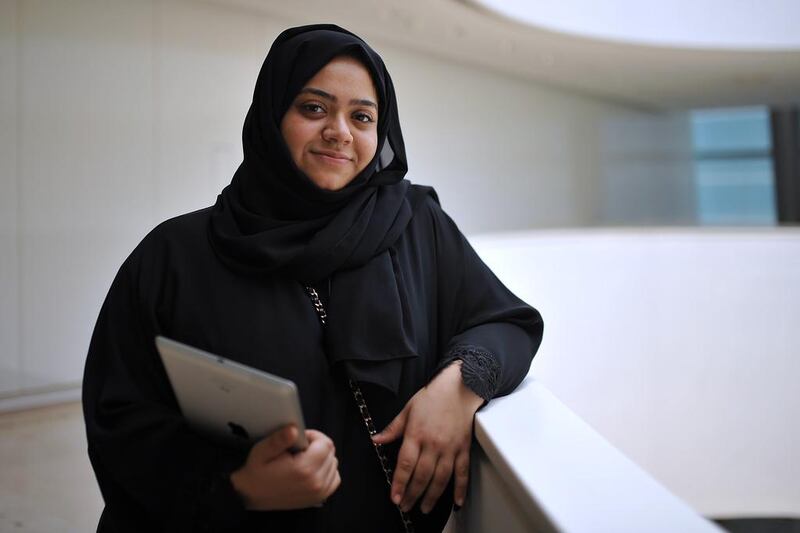ABU DHABI // Mothers enrolled at Zayed University are being offered support to help them cope with the demands of student and family life.
Hareem, set up by female students with children, aims to provide a community of women who are on hand to offer help and advice on everything from coursework and hitting deadlines to babysitting.
“The idea started in my freshman year when I was pregnant with my third child,” said Ameera Mubarak, 31, who established the group after struggling to return to her studies after giving birth. “I was looking for a support group with women in my situation.
“The idea was to have other women who are going through the things you are, to assure you and even to benefit from people who have been through it already. It can be a scary time.”
Mona Al Zubaidi, 32, Hareem’s vice president, has three children – 10, eight and four. She is enrolled on the same psychology and social services studies as Ms Mubarak.
She said adapting to life on campus and spending time away from young children takes a toll.
“Before I joined Zayed University, I felt very lonely, but then I felt I had a purpose, that there was something in life to be accomplished and with the help of the club I feel I have somewhere to go when I have problems.” Another of Hareem’s aims is to set up a database of mothers: there are no statistics on how many students at the Dubai and Abu Dhabi campuses have children or are married.
“Part of the club’s aim now is to gather this data and do surveys to find out the numbers of women who are married and have children,” Ms Al Zubaidi said.
Iman Fredericks, the students’ supervisor and head of student development, is leading the research. “Normally, you will know if a student is pregnant or has a child because they take a semester off,” said Ms Fredericks, adding that staff had no way of knowing if the women were single when they enrolled or if they became pregnant while studying and what can be done to help.
So far, they have interviewed 20 students to find out what needs they have, what support is missing and what kind of issues they face. Ms Al Zubaidi said that, at first, asking women about such private matters was “very difficult. Some girls weren’t willing to talk about it”, adding that more support from academic staff was needed.
As well as Hareem, the campuses’ early childhood-learning centre allows women to bring babies and children to university and offers a place to breast feed and maintain contact with their children while studying. But many would like to have a part-time study option, Ms Fredericks said. “That’s still something we’re working on.”
Fatima Al Sayegh, 21, who is studying public relations, is a member of the group although she is unmarried.
“I see these mums trying so hard to be better so as someone without these responsibilities, I was inspired,” she said.
mswan@thenational.ae






